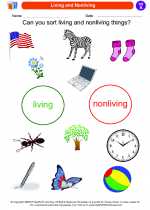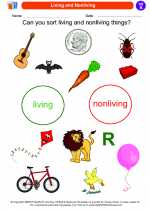Living and Nonliving -> observation
What is Observation?
Observation is the process of using our senses - such as sight, hearing, smell, touch, and taste - to gather information about the world. It involves paying attention to details and making note of what we see, hear, smell, feel, and taste.
Why is Observation Important in Science?
Observation is important in science because it allows us to gather data and information about the natural world. By making careful observations, scientists can make hypotheses, conduct experiments, and draw conclusions about how things work.
How to Make Effective Observations
- Use all of your senses: Make use of sight, hearing, smell, touch, and taste to gather information.
- Be objective: Try to be as neutral and unbiased as possible when making observations.
- Record your observations: Keep a journal or log to write down what you observe, including details and any patterns you notice.
- Be patient: Take your time to carefully observe and notice even the smallest details.
Examples of Observations
Here are some examples of observations:
- Noticing that an ice cube melts when placed in a warm room.
- Seeing that plants grow towards the light.
- Smelling the aroma of freshly baked cookies.
- Feeling the texture of a rough rock.
Practice Activity
Take a nature walk and make a list of all the things you observe using your senses. Record your findings in a journal and discuss what you observed with a friend or family member.
[Observation] Related Worksheets and Study Guides:
.◂Science Worksheets and Study Guides Kindergarten. Living and Nonliving
The resources above cover the following skills:
PHYSICAL SCIENCE (NGSS)
Motion and Stability: Forces and Interactions
Students who demonstrate understanding can:
Plan and conduct an investigation to compare the effects of different strengths or different directions of pushes and pulls on the motion of an object.
Analyze data to determine if a design solution works as intended to change the speed or direction of an object with a push or a pull.
EARTH AND SPACE SCIENCE (NGSS)
Earth and Human Activity
Students who demonstrate understanding can:
Use a model to represent the relationship between the needs of different plants or animals (including humans) and the places they live.


